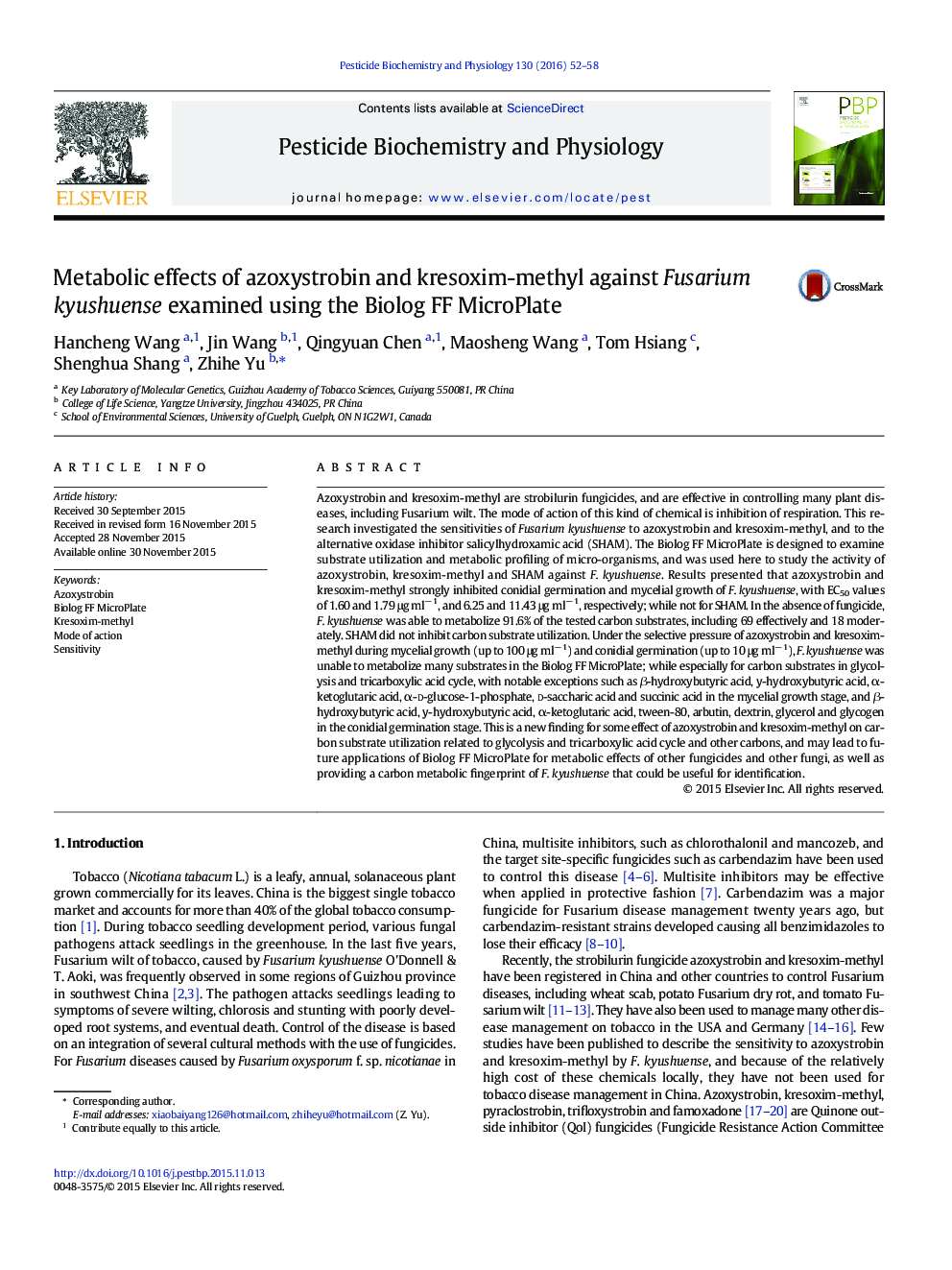| Article ID | Journal | Published Year | Pages | File Type |
|---|---|---|---|---|
| 2008941 | Pesticide Biochemistry and Physiology | 2016 | 7 Pages |
•Azoxystrobin and kresoxim-methyl inhibited conidial germination and mycelial growth of F. kyushuense.•F. kyushuense was able to metabolize 91.6% of the tested carbon substrates, including 69 effectively and 18 moderately.•Azoxystrobin and kresoxim-methyl had an effect on carbon substrates utilization related to glycolysis and the tricarboxylic acid cycle.
Azoxystrobin and kresoxim-methyl are strobilurin fungicides, and are effective in controlling many plant diseases, including Fusarium wilt. The mode of action of this kind of chemical is inhibition of respiration. This research investigated the sensitivities of Fusarium kyushuense to azoxystrobin and kresoxim-methyl, and to the alternative oxidase inhibitor salicylhydroxamic acid (SHAM). The Biolog FF MicroPlate is designed to examine substrate utilization and metabolic profiling of micro-organisms, and was used here to study the activity of azoxystrobin, kresoxim-methyl and SHAM against F. kyushuense. Results presented that azoxystrobin and kresoxim-methyl strongly inhibited conidial germination and mycelial growth of F. kyushuense, with EC50 values of 1.60 and 1.79 μg ml− 1, and 6.25 and 11.43 μg ml− 1, respectively; while not for SHAM. In the absence of fungicide, F. kyushuense was able to metabolize 91.6% of the tested carbon substrates, including 69 effectively and 18 moderately. SHAM did not inhibit carbon substrate utilization. Under the selective pressure of azoxystrobin and kresoxim-methyl during mycelial growth (up to 100 μg ml− 1) and conidial germination (up to 10 μg ml− 1), F. kyushuense was unable to metabolize many substrates in the Biolog FF MicroPlate; while especially for carbon substrates in glycolysis and tricarboxylic acid cycle, with notable exceptions such as β-hydroxybutyric acid, y-hydroxybutyric acid, α-ketoglutaric acid, α-d-glucose-1-phosphate, d-saccharic acid and succinic acid in the mycelial growth stage, and β-hydroxybutyric acid, y-hydroxybutyric acid, α-ketoglutaric acid, tween-80, arbutin, dextrin, glycerol and glycogen in the conidial germination stage. This is a new finding for some effect of azoxystrobin and kresoxim-methyl on carbon substrate utilization related to glycolysis and tricarboxylic acid cycle and other carbons, and may lead to future applications of Biolog FF MicroPlate for metabolic effects of other fungicides and other fungi, as well as providing a carbon metabolic fingerprint of F. kyushuense that could be useful for identification.
Graphical abstractFigure optionsDownload full-size imageDownload as PowerPoint slide
